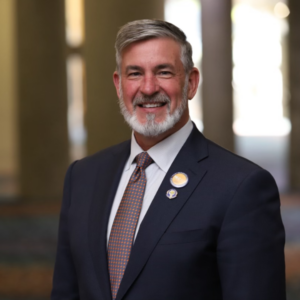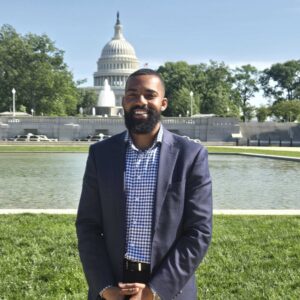The toll the pandemic took on our cities’ 2020 Census efforts is still unknown. My city of Athens, Ohio, is a college town where nearly 70% of our population is in the historically undercounted group of young people (18-24 years old). As Mayor, I knew that an undercount in our census numbers could dramatically influence the amount of federal funds we received for things like Community Development Block Grants, the Athens city school districts, and Jobs and Family Services programs. It could also adversely influence our representation in Congress, in the state legislature, and even if we will be able to add a new ward and seat to our City Council.
Like so many other things, the pandemic uprooted virtually every aspect of our collective census outreach efforts nationally and forced all of us to adjust our strategies to accomplish a successful get-out-the-count outreach campaign. As I reflect on our experience in Athens and the experiences of my college town colleagues through NLC’s University Communities Council, I’ve observed that despite the myriad challenges we experienced due the COVID-19 pandemic we were able to work our way through it and find new ways to solve problems.
Our evergreen challenge of reaching and encouraging participation from our historically low‑responding off-campus college student population was present from the start. In fact, their participation was identified by the Athens County Complete Count Committee as our number one priority in late 2019. To address this, our initial plan was to hold “Athens Census Fest” on Census Day, April 1, 2020. Thanks to a generous grant from the National League of Cities, we had funds to help us launch Census Fest, which was going to be a day of events to encourage our large population of Ohio University student residents to complete their Census form. We planned to have a Ferris wheel, carnival slide, free and discounted food, drinks, and wares from our uptown businesses, live music, and participatory public art events. Any student who could verify that they completed the census would be eligible to participate. School-aged children and their parents would also be eligible to participate in the late afternoon and early evening. I have no doubt that this event would have been a once-in-a-lifetime experience and memory for the Ohio University students and would have been helped to increase our response rates from our off-campus student residents.

Once the COVID-19 virus began spreading across the country our plans had to be set aside. Due to public health orders and concerns, the spring semester at Ohio University was moved to a remote setting and almost all on-campus students and roughly two-thirds of the off-campus juniors and seniors did not return to Athens after mid-March. This change meant that about 12,000 students were not in Athens during most of the census enumeration activity. To further complicate this matter, a great deal of that “April 1” population – Census Day is a marker not just to bring awareness for the Census but also to ask people where they were living on that date – graduated in May 2020 and would never be returning to Athens to live. To make these matters even worse, the Census Bureau and Department of Commerce leadership delayed enumeration plans and timelines for both public health and political reasons. These changing directives from the Bureau added a great deal of confusion and frustration to our city’s outreach efforts. Our challenge to enumerate these residents for the 2020 Census could not have been greater.
We used several strategies to try address this complicated problem and reach out to Athenians displaced by the pandemic. Our city planner and a few interns utilized the NLC grant funds to launch a social media campaign using paid postings to reach our off-campus audience in the largest cities in Ohio and a few others in the Midwest. This campaign leveraged merchandise and gift cards from Athens bars and restaurants frequented by students and appealed to their love of Athens. We also worked closely with census staff, fraternities and sororities, local landlords, and property managers to get as much information as possible. We were also fortunate to have local and regional media promote the census (and explain the problem) with numerous articles and radio pieces that helped to move the needle in our favor.
Because of delays with the release of census data we do not yet know how accurate the census count in Athens will be yet. We do know that our prize giveaway campaign resulted in over 900 people completing the census and that our social media efforts reached thousands of people who otherwise may not have participated in the census.
If the reported census counts are lower than we expect, we are preparing to review the data to help decide if a formal appeal of our final count is warranted through the Count Question Resolution program. To do this, we will compare the 2020 and 2010 census block data as well as the rental registry data maintained by our city code enforcement office for differences beyond what we expect. All cities will need to look to their locally-maintained and available data to understand whether their final count is accurate – and we won’t know those final numbers until as late as September of this year, by when the Census Bureau has promised it will release the detailed city data. In closing, I would be remiss if I did not mention that the National League of Cities has done everything in their power to support our census work and continue to be committed to a fair, complete, and accurate count among historically undercounted communities.
If you’re a municipal local elected official or staff interested in following NLC’s local democracy work that supports post-census data accuracy, community-engaged redistricting, voting, and elections, please visit Cities Count at www.nlc.org/census or reach out to us at censusrapidresponse@nlc.org.










